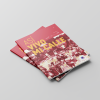Typical travel planners provide a great service to users: they indicate what travel mode they should take if they indicate where they need to go. But they could go beyond that and provide a better service by providing access rather than transport.
We have learned that transport by itself is not an entirely useful activity. It is most relevant when it is linked to the purpose of providing access. In that sense, many journeys could – at least in principle- be replaced by non-travel activities and anyway provide access to the same needs. If I need to work I can do it from home by teleworking, if I need a pencil I can order it online and if I want to learn something I can go to an online course. The specifics of each option vary from the «traveling» option, but in essence they serve the original purpose.
We could use this knowledge to help people by transforming the way travel planners work. The typical travel planner asks the user one question («where do you need to go?») and provides one basic answer («these are your options to get there»):

If we would expand the two key components of the travel planner and create an «access planner», the story would be more interesting since the person would answer a broader question («what do you need?») and the platform would provide a broader array of answers which not only tell them what mode of transport they should use but rather what options they have to get something (for instance, they could go by transport but they could also order something or use a specific service that anyway meets their need):
It could, in addition, tell the user the implications of each choice: by taking transport you would emit X amount of CO2 but anyway have the chance to see the city and, if walking, have some physical activity. If you order a product you would have less emissions but no urban experience, and if you satisfy your need by use of a virtual service you would have close to no emissions.
In order to achieve this, the platform must be much more robust than the travel planner, since the latter only needs to submit its query to travel databases that provide information on services, frequencies, and at the most it has to request information from other transport providers. In the access planner, the platform needs to submit the query to various other databases that can tell them how to solve the need by either making use of transport services, or shopping or hiring a digital service. It would also need to calculate the effects of each choice in terms of externalities and more qualitative characteristics.
It may well be that someone is already writing up the code for this, but it’s worth throwing the idea around to see if it’s good or not. I am sure it will at least generate some debate.
Follow @carlosfpardo









Comentarios recientes